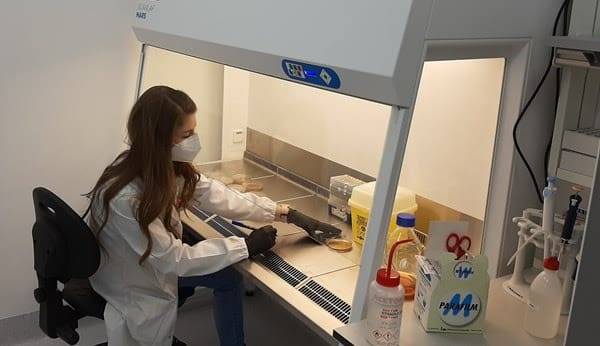A demonstration plant for industrial-scale production of polyamides (nylon) applicable to many production sectors, including fashion. Putting sustainability and circularity principles into practice.
An investment of almost EUR 6.2 million, of which a EUR 1.7 million grant from the Region of Piedmont
A pioneering objective: for the first time, to demonstrate the feasibility of industrial-scale production of polyamides (nylon) starting from bio adipic acid obtained from renewable raw materials, including waste oil and by-products of the oil industry. Potential application sectors for the process and products are textile/fashion, automotive, design, electrical and electronics. This major sustainability-and-
The research was conducted through the Ulysses project and experimentation was performed in collaboration with research centres and universities. Partial funding was received from the Region of Piedmont, within the scope of the “Call for Proposals IR2 (Industrialization of research results)”. The ambitious, innovative multiyear project was launched in March 2018 and stemmed from RadiciGroup’s desire to increase the sustainability of its products, whilst delivering the same quality and performance as required by product standards. What is more, the Group wanted to meet the demand coming from its various strategic sectors, in line with the European targets for the development of low-emission businesses and a circular economy.
The funding amounted to EUR 6.2 million, of which EUR 1.7 million was contributed as a grant by the Piedmont Region. This investment confirms RadiciGroup’s great commitment to scientific research, which is strongly supported by the Group’s shareholders.
RadiciGroup’s commitment to the ULYSSES project, carried out thanks to the facilities of Radici Chimica and the research and innovation expertise of Radici InNova,” commented Stefano Alini, CEO of Radici InNova.“confirms the strategic importance of sustainability, which has always been part of the Group’s DNA. Sustainability principles accompanied the project all through its development process. First, waste oil becomes a raw material for the production of adipic acid, which in turn serves as the base material for the production of polyamide polymers, the key ingredients for the manufacture of components. Finally, the components are fully or partially recycled at the end of their useful life.” Mr. Alini continued: “In this way, the circular economy cycle is completed, thus responding to the demand coming from an ever-increasing number of customers, especially those in the world of fashion and textiles, who are very sensitive to the environmental impact of products. These customers are requesting the development of new materials that can also meet the sustainability goals at the national and EU level, such as Agenda 2030 and the Green Deal. The concept of bioeconomy fits perfectly into the RadiciGroup sustainability programme, in which the careful use of raw materials and resources is of vital importance.”
The ULYSSES project focused on three main areas of research, all of which had the same general approaches: firstly, the experimental processes developed within the Ulysses project framework were industrialization oriented; secondly, they had a strong innovative component; and, lastly, they implemented the principles of sustainability and the circular economy in real-world applications.

